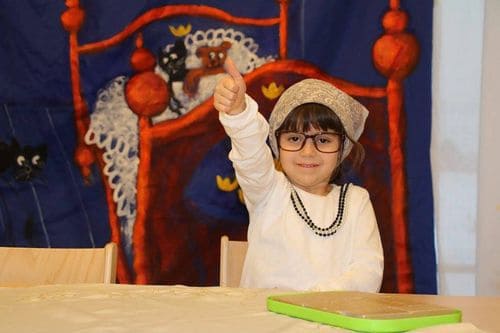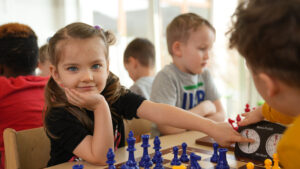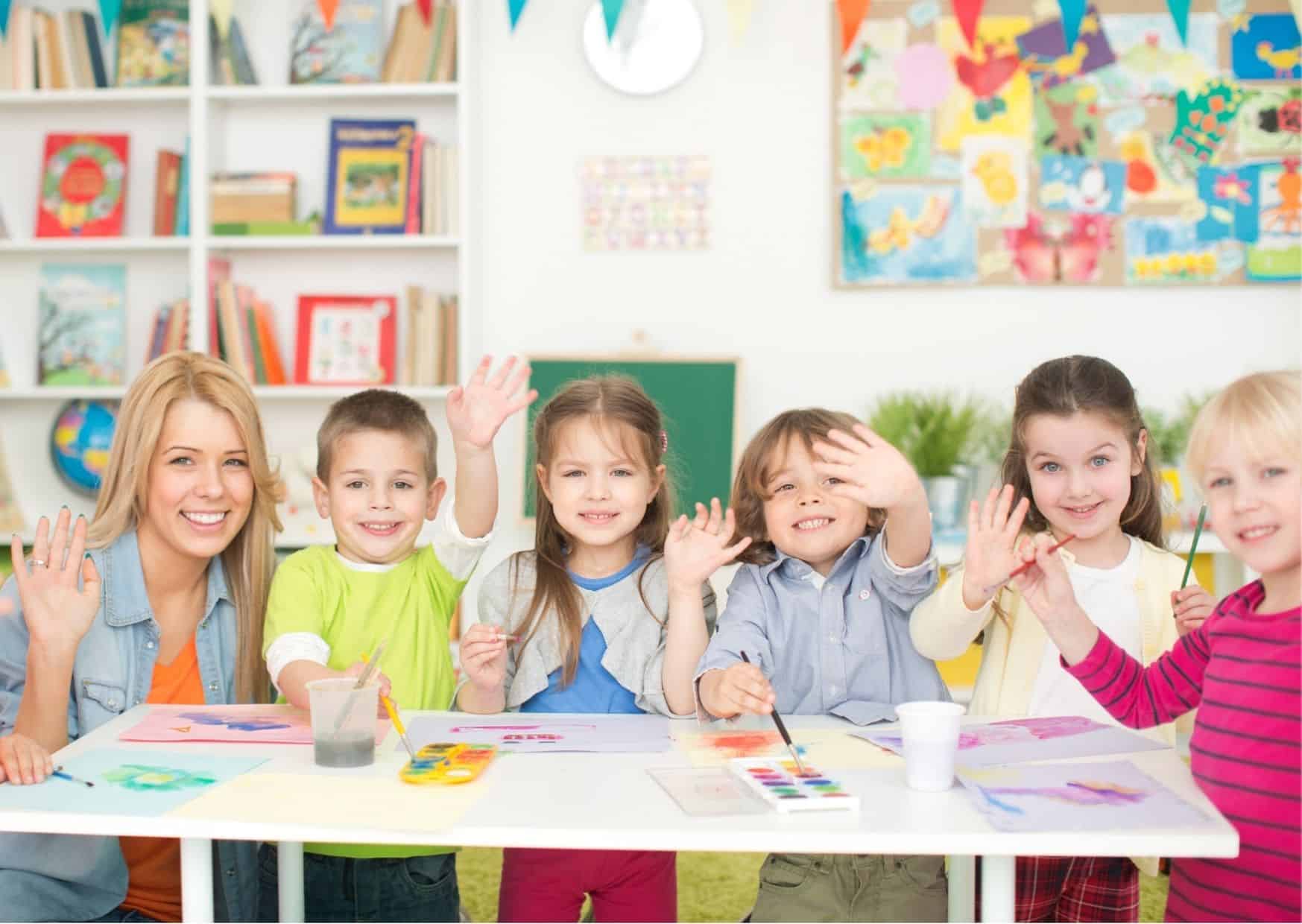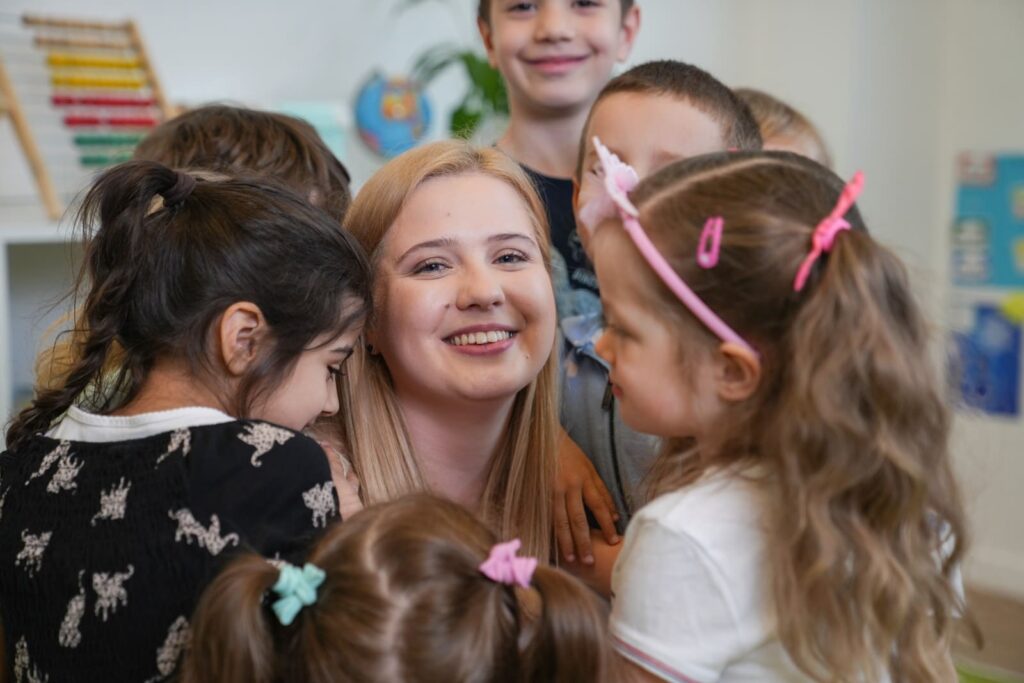The primary responsibility for raising a child rests with the parents. Still being in the company of a child, the need to deal with their various moods and the problems they create, is tiring. Even the most loving parents need some rest from time to time. In such situations, the help of grandparents may prove invaluable.
Grandparents are irreplaceable in the process of raising a child and shaping their awareness. They show the image of durability in relation to the passing time, as well as give the opportunity to familiarize children with the passing of time. It is grandparents who give awareness of family identity and show the multigenerational nature of the family. It is our parents who mainly tell their grandchildren family stories, telling about the past, about their parents and grandparents. It makes the little man aware that he is part of an ongoing whole. It gives him a sense of security and, above all, helps to shape his personality.
Grandparents are also most often those in a child's life who pass on moral principles and religiosity to them. Their very existence and the limitations of possibilities, for example due to age, teach attitudes towards other people - a sense of duty, respect for others and for their weaknesses, tolerance, and noticing different needs of other people. Equally often, grandparents also pass on family traditions and home customs, watch over rituals, even the simplest ones - making palms, painting Easter eggs, hay under the tablecloth, lighting a candle on the grave of a loved one, singing together or walking. They often live the rhythm of the liturgical and calendar year, adapting to the changing seasons, accepting a certain repetition in life, and not, like parents, chasing everyday duties. They are also family uniting people, building family relationships. They strengthen intergenerational ties. It is often thanks to them that younger generations have contact with their extended family and a sense of community. In families where grandparents are still present and respected, there are stronger emotional connections.
Grandparents also complement their parents and the models they present on many levels: they broaden the horizons of their grandchildren, because they have much more life experiences, which, if only because of the different times, are different. Despite the sometimes "outdated" educational assumptions, grandparents often have the knowledge and intuition accumulated over the years how to reach a young person. In contact with their grandchildren, they use knowledge based on raising their own children, but also on the mistakes made at that time. They are often better grandparents towards their grandchildren than they were parents to their children. In grandparents, granddaughters can look for comfort, tenderness, and above all, unconditional acceptance and what parents lack nowadays - the presence and time for their children. Grandparents can afford silence, patience and gentleness. They provide a sense of security because they are predictable. They stimulate the emotional and intellectual development of grandchildren by showing them the world, describing it, taking the kids on trips, discovering the details of everyday life, telling stories, talking and listening.
In conclusion, you can create a list of treasures that grandchildren get from grandma and grandfather. The most valuable gifts are:
- For grandmother and grandfather, granddaughters are always the most beautiful and the wisest. They can forgive him a lot. They don't expect him to start reading and writing as a preschooler. They keep their fingers crossed for him the most when he is struggling with something. They collect photos and cards. Maybe they pamper the little ones, but they love it: who wouldn't want to feel like a king sometimes?
- They remember times that are unattainable for a little man: when the orangeade bottles had ceramic stoppers, there were not so many cars and hardly anyone heard about computers. They can also tell what it was like when mom and dad were little, reveal some funny anecdotes. Children love to hear such stories.
- Even if they are busy, they don't chase as fast as their adult children. They remember the times when there was no internet, and holiday greetings were sent on postcards, not via SMS. Although there was more work then, time passed much slower.
- They can listen and therefore you can talk to them seriously. They are curious about the grandson and his affairs. They remember the names of toys, heroes of favorite books and friends from the playground.
- They know many truths, even if some of them only sense intuitively, they usually have a "nose" for people. They teach distance to life, problems and yourself. They respect tradition. They know how important the family is, which is why they talk about it often. They have survived a lot, and therefore no matter what can make them angry. They are able to rationally assess the situation and do not panic even when others lose their mind.
- Grandparents are great teachers, but also students. They listen carefully to their grandson as he explains how to get a remote-controlled car to move or turn on a DVD. The little man swells with pride when he can teach the elders something. Then he feels important and wise.
- Grandparents know magical ways to deal with virtually all problems: from treating a runny nose, through removing the stain on the blouse, ending with helping, how to solve a fight in a sandbox. They also know that to make childhood magic, you don't need any gadgets, more important are nuts in a drawer, a cup of milk with honey, stories and lots and lots of warmth.
- Grandparents like to celebrate meals, they know what real food is, so they won't fall for just anything. Grandpa brings pulpwood from the plot. Grandma makes noodles and tosses homemade preserves. They both teach that eating on the go is no fun.
- They are like an ambulance. If they can, they will come from across town to pick up the child from kindergarten or to tell him a bedtime story. They will take them on vacation, to the zoo and for a walk. You can count on them even when they live far away.
Parents 'task is to raise children, set limits and requirements, while grandparents' task is to show the world from a different side and, of course, to pamper. If there is a balance between these relationships, each side can gain a lot from these relationships.
Magdalena Dulęba-Basior
psychologist




